Thousands of monkeys terrorise Thai town: Marauding 3,500-army of primates run riot forcing businesses to shut and tourists and shoppers to flee
- The local shopping center was put up for sale, but the price has been reduced
- The number of monkeys has increased during the pandemic and the local population cannot cope
An army of marauding monkeys in a Thai city is forcing businesses to close and tourists and shoppers to flee.
The city of Lopburi, about 150 kilometers north of the capital Bangkok, is known for its monkey population that attracts tourists from all over the world.
But the city, which had a vibrant local economy, is now in danger of becoming a ghost town as 3,500 monkey monkeys have taken control.
The city’s monkeys are much loved – locals even hold an annual festival to honor them, but now businesses and small businesses have closed up shop and tourists are staying away.
Lopburi is home to around 6,000 macaques, which were a major tourist attraction before the lockdown stopped visitors from coming – but have now become a threat to locals
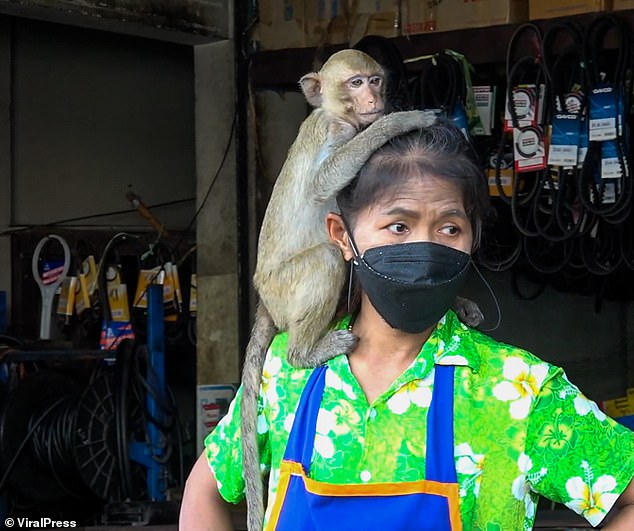
The monkeys’ lack of fear of humans has led them to clamber over and in some cases fight bystanders to steal food and belongings
Surachat Chanprasit, a representative of Pingya Shopping Center, said monkeys regularly swarmed the establishment and harassed customers who came to shop.
They also damaged storefronts, forcing owners to undertake repair work and hasten their departure from them.
The mischievous monkeys have become such a problem that the local mall was put up for sale two years ago, but the mall is still for sale and the price tag has been reduced.
The shopping center was originally for sale for 100 million baht (£2.2 million), but has been reduced to 70 million baht (£1.55 million).
In an effort to encourage businesses to stay, the mall also reduced business rents to help store owners cushion the blow to their profits, but the city is still struggling to recover.
“Earlier, a Chinese investor had visited the area to check the feasibility of an investment,” Surachat said.
‘However, when the investor realized that the problem of the monkey population threatening the heart of the city had not yet been solved, he postponed the investment indefinitely.’
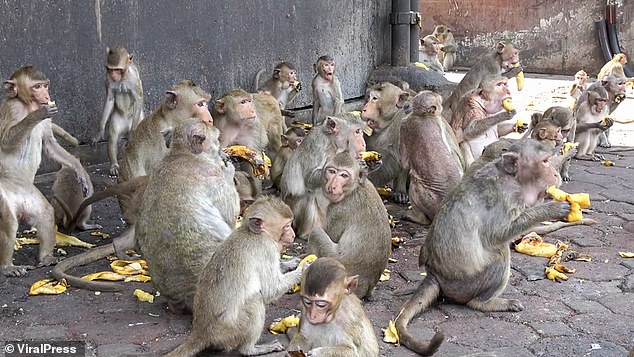
Hordes of wild monkeys are terrorizing a town in Thailand as they become addicted to sugary drinks while downing bananas
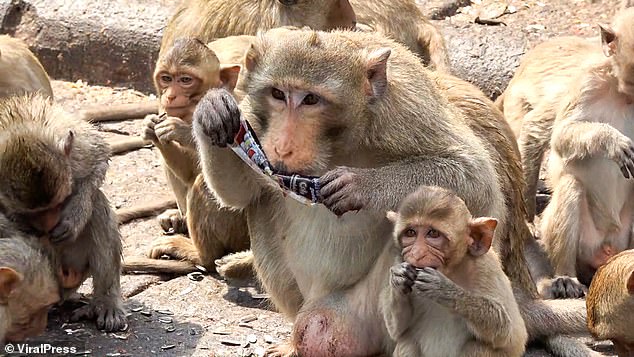
The monkeys multiplied significantly during the pandemic and their constant diet of sugary snacks has made them hyperactive and more willing to reproduce
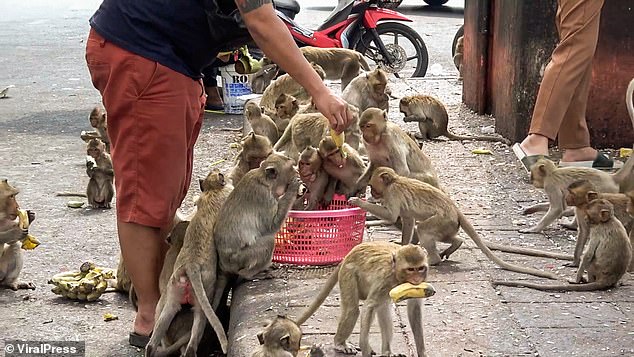
After tourists began returning to Thailand following the easing of coronavirus restrictions, the number of monkeys skyrocketed
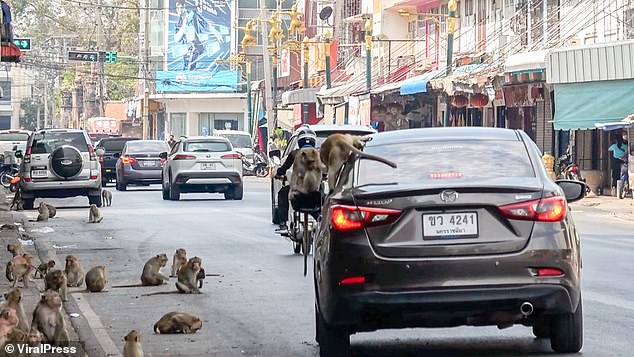
Their complete lack of fear of humans means that monkeys exhibit extremely bold behavior, clambering over the windshields of moving vehicles and jumping over bystanders in the street.
The monkeys of Lopburi, who have no fear of humans at all, engage in extremely bold behavior, climbing over the windshields of moving vehicles and jumping over bystanders on the street.
Locals say there are even rival gangs marking their territory, leading to clashes when the animals meet.
Government officials have tried to control the wild monkey population in recent years, but have been unable to curb the numbers as the animals continue to multiply.
In 2020, large numbers of monkeys were sterilized as part of a government program after their numbers spiraled out of control during the pandemic.
Wildlife Department officials lured the animals into cages with fruit and took them to a clinic where they were anesthetized, sterilized and left with a tattoo to mark their castration – but authorities just can’t keep up.
